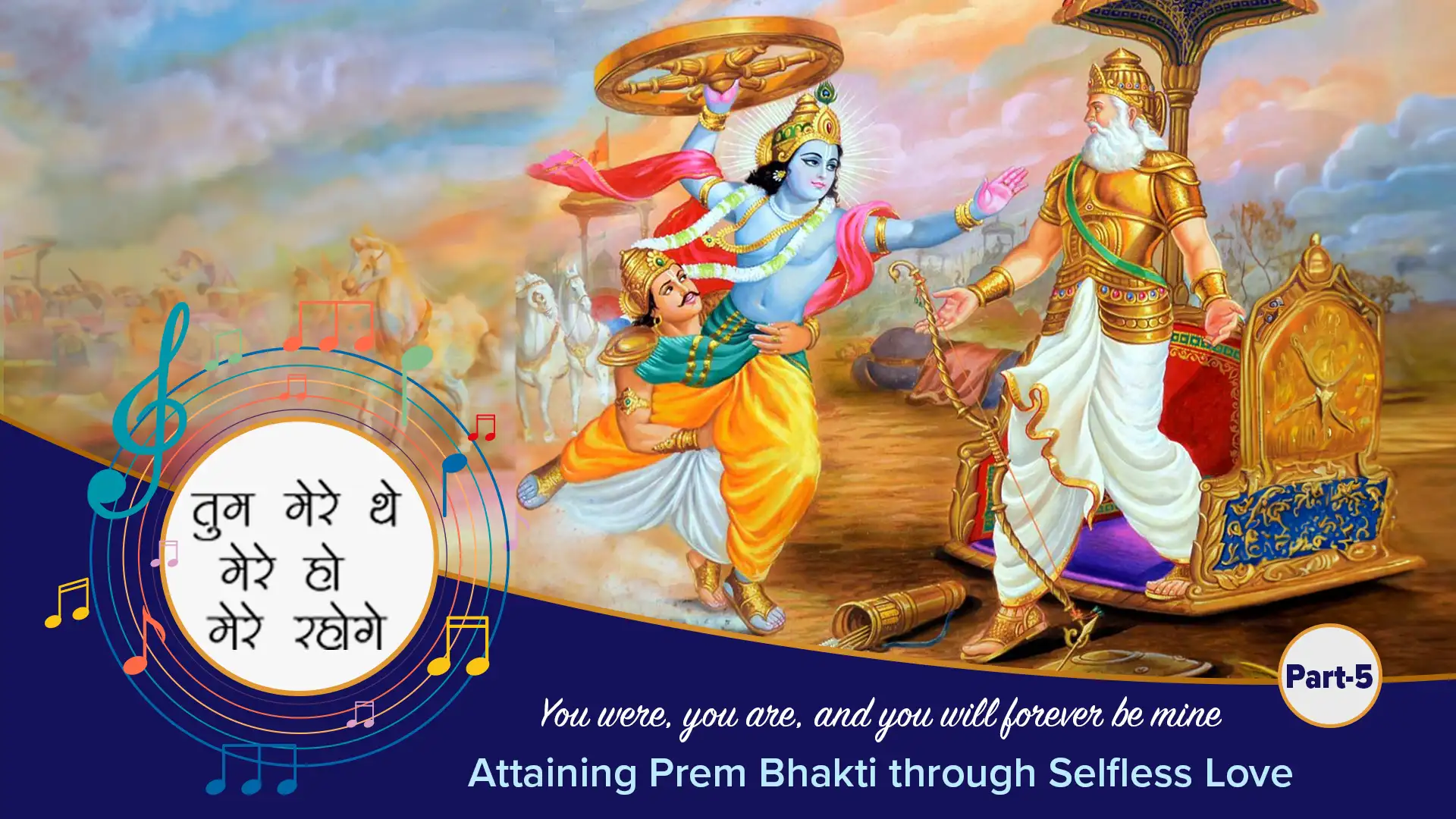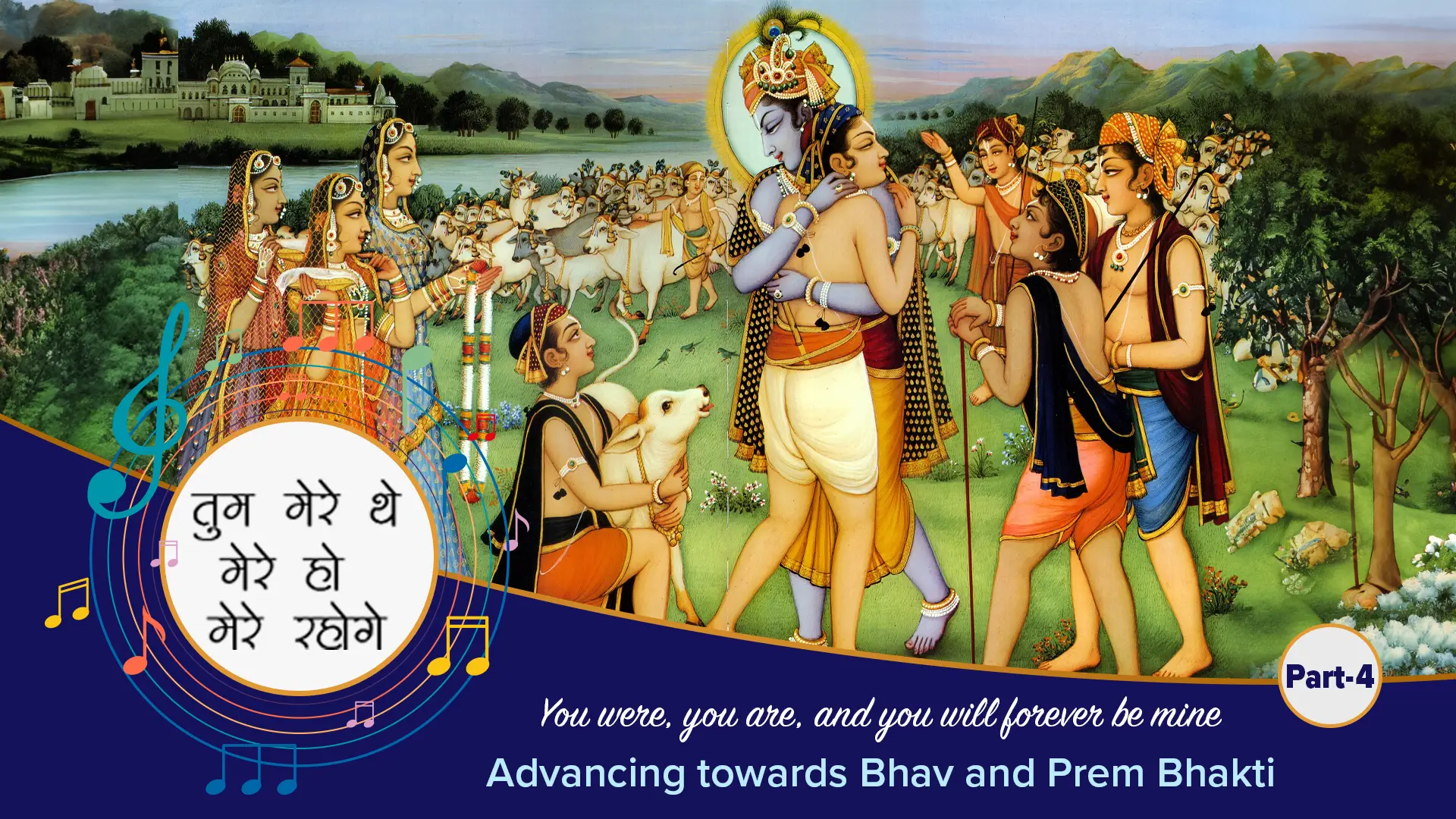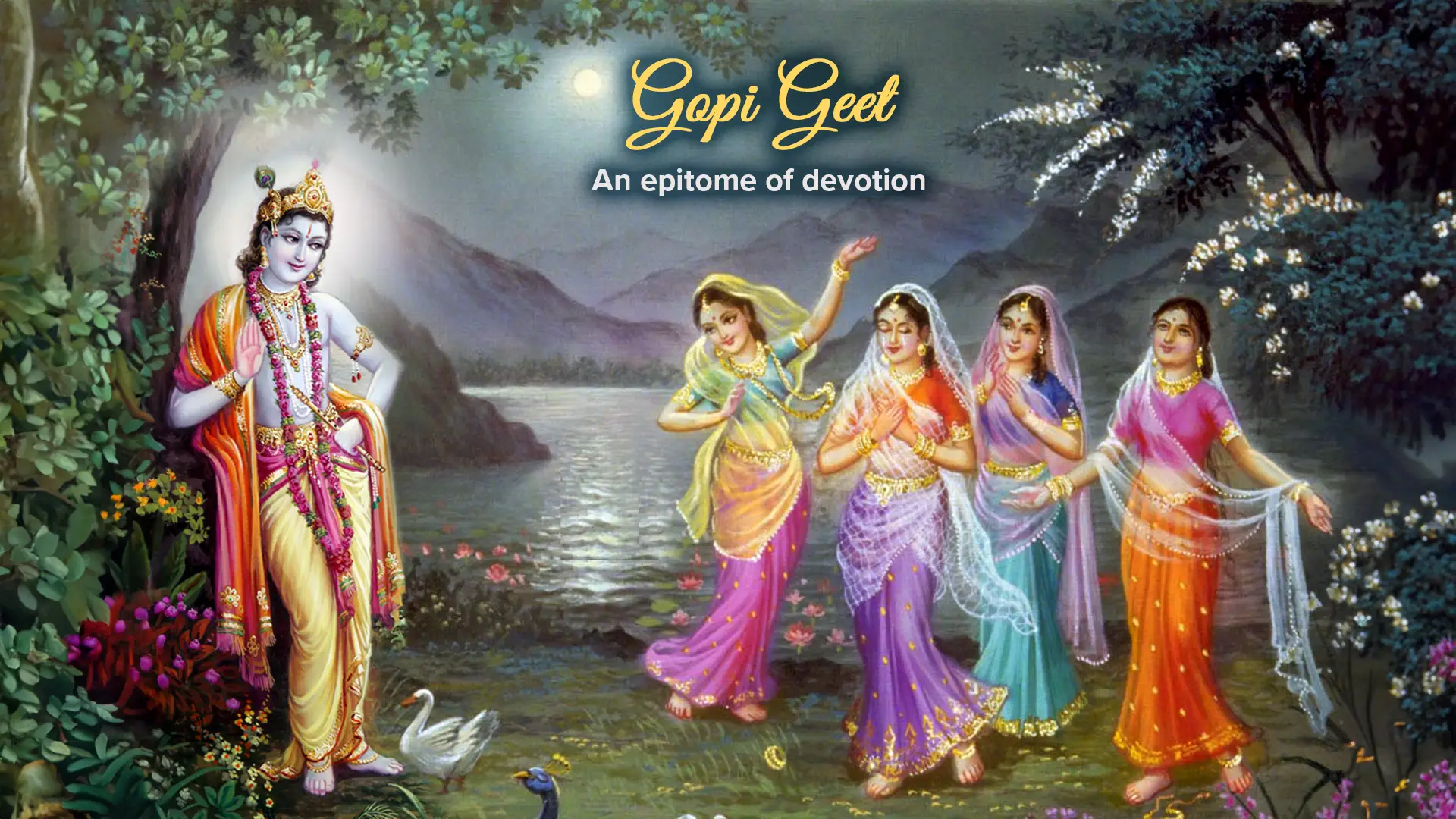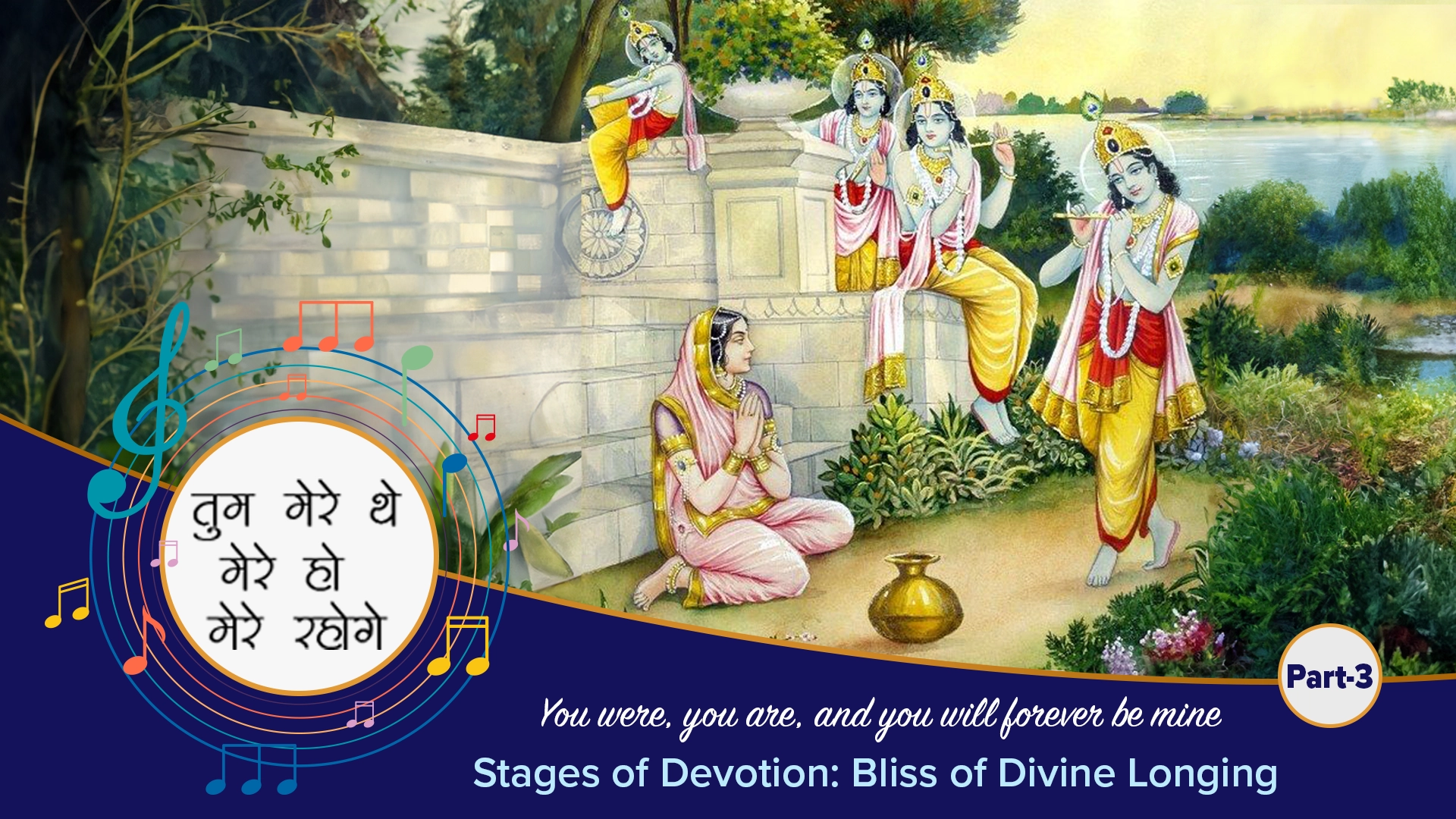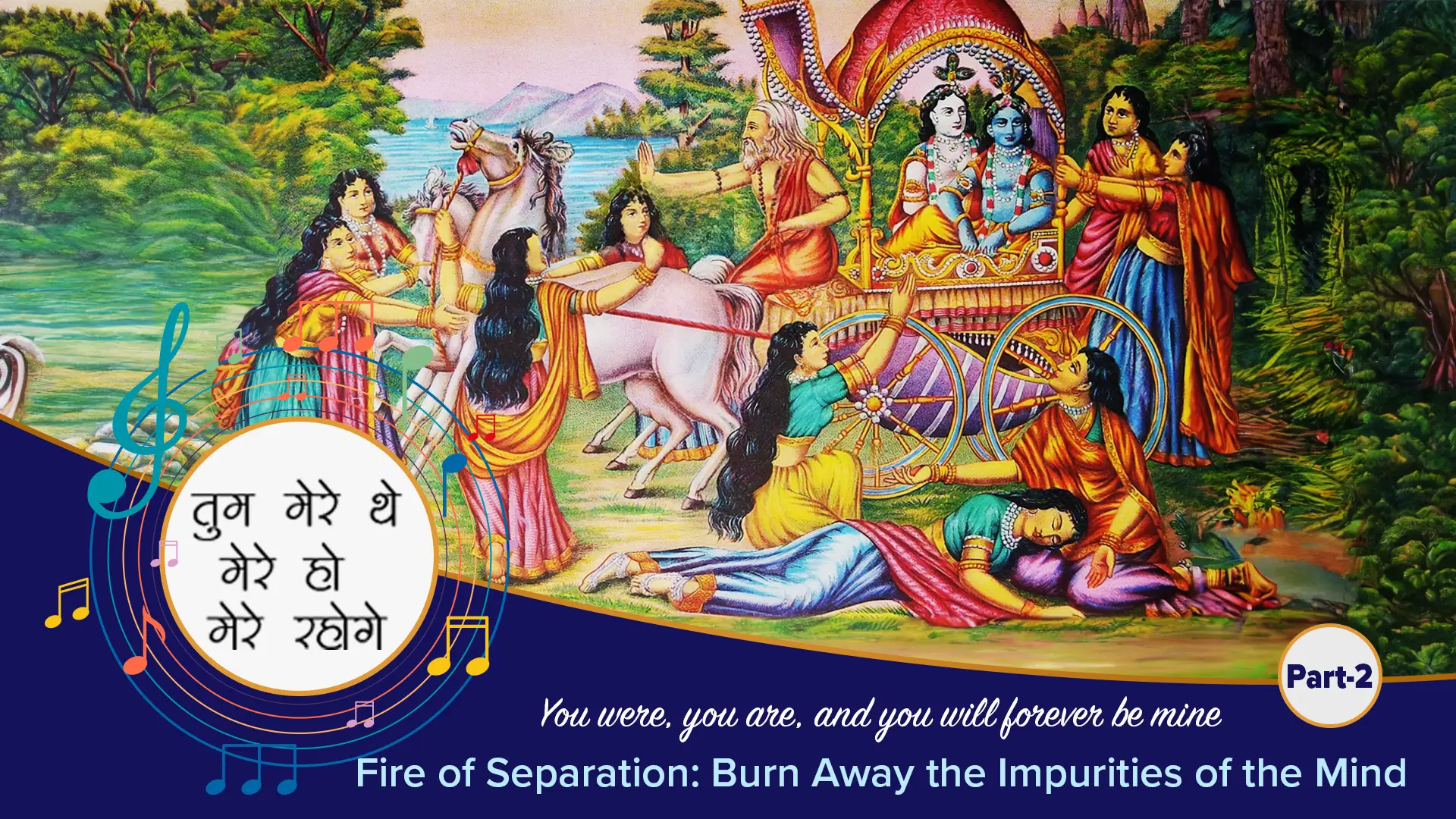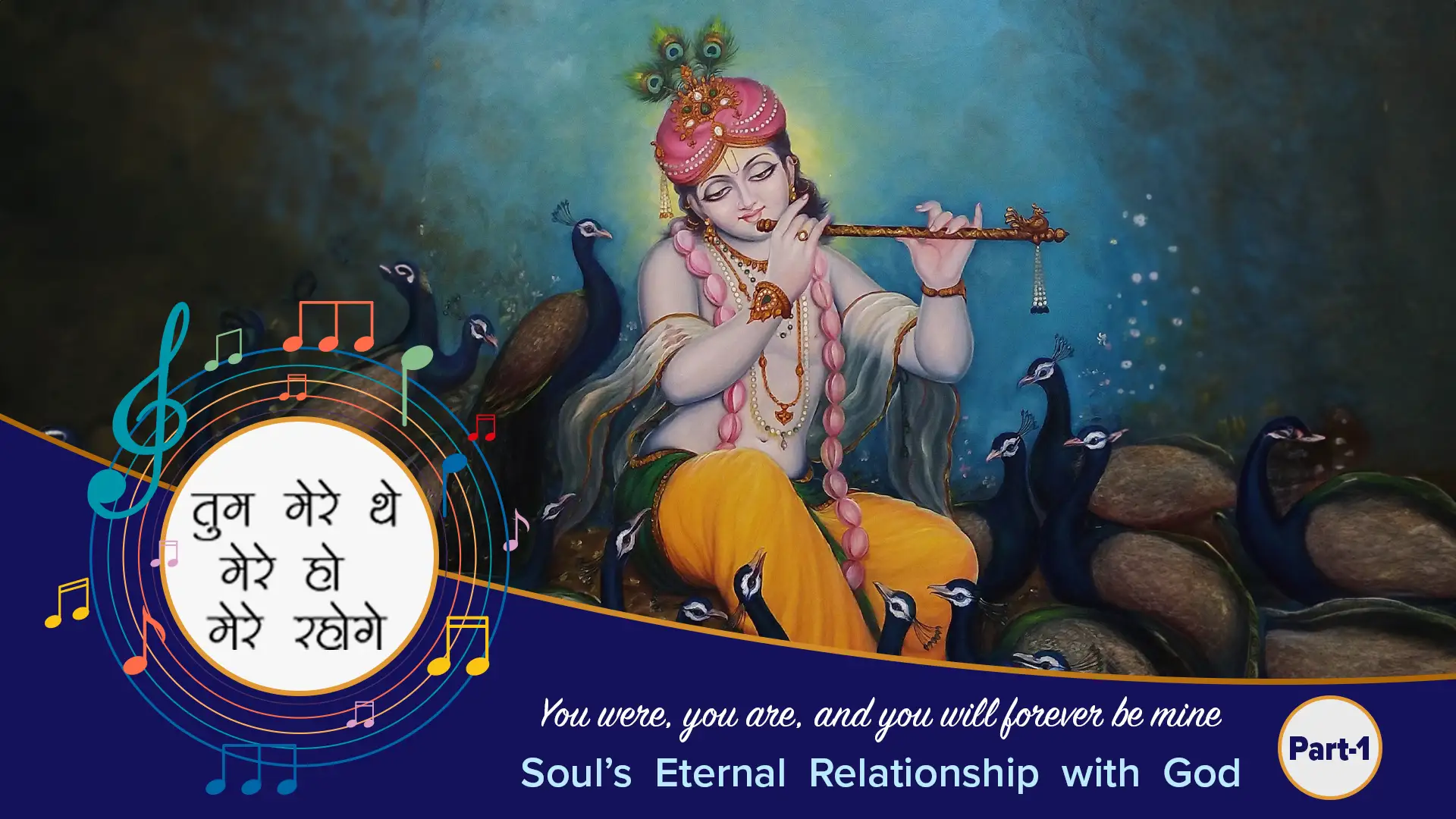In the last edition, we delved into stanza four of "Tum mere the mere ho mere rahoge" (You were mine, You are mine and will always be mine), where Shri Kripaluji Maharaj illustrates the science of bhakti. He gives us a glimpse of the stage of bhakti, where the sadhak's mind and senses are hankering for God. The soul experiences a deep longing (आसक्ति/āsakti) for God and desires to be embraced by Him.
In the next verse, Shri Maharajji explains the nature of bhav bhakti, which is the final stage before attaining God. The stage of bhav exudes the oblique effulgence of prema bhakti, where God manifests before the devotee. Just as the sun begins to rise, the darkness of night is gone. Similarly, at this stage, a few rays of bhav bhakti enter the sadhak's heart and purify it until he reaches the stage of complete surrender—the state of "mām ekaṁ śharaṇaṁ" (मामेकं शरणं). God will finally reveal His divine Swaroop (form) to the devotee in that state.
Narad Ji's Pursuit of Divine Love
Sometimes, the Lord manifests as a special grace only to disappear soon enough and make the devotee pine for Him desperately. Narad ji was once in such a state. During one Chaturmas (four months of monsoon season), Narad ji had the honour of hosting four mahatmas at his house, and he and his mother served with utmost devotion. The mahatmas delivered enlightening discourses daily, and hearing them left Narad ji's heart feeling pure and refreshed. However, soon after Chaturmas, the mahatmas left, and Narad ji's world turned upside down. A snake bit his beloved mother, causing her to pass away and leaving him feeling lost and alone. Just as he believed he had reached rock bottom, Shri Krishna appeared before him, only to vanish swiftly, leaving Narad ji in desperate pursuit. Narad Ji's search took him to different holy places, but he was disappointed each time. Finally, in an akashvani (voice from the sky), the Lord spoke to him and said, "Narad, I have given you a glimpse of myself as a special encouragement, but you are not yet ready for my darshan. Focus on your sadhana; you will surely be with me in your next life." Narad ji accepted and said to the Lord, "We depend upon your grace to prepare our pātra (पात्र/ vessel to contain divine love). I am deeply desirous of your divine embrace, but you come whenever you like."
Such a sadhak says to his beloved Lord in bhav bhakti:
चाहे मम आलिंगन कर लो,
चाहे मम प्रानन ही हर लो ।
चाहे जी भर कर तड़पा लो, मोहिं काम श्याम गुन गाने से ॥
chāhe māṃ āliṅgan kar lo,
chāhe māṃ prānaṃ hī har lo
chāhe ji bhar kar taṛpā lo, mohiṃ kām śyām guṇ gāne se
The lines translate as Embrace me if you like or kill me if you so desire. Or torment me by giving me your separation. It doesn't matter; I will keep on singing your glories.
A devotee filled with love and devotion for God is not bothered by whether God showers him with His love and blessings or punishes him for his mistakes. Unlike worldly love, his love for God doesn't fade away with negative behaviour. Instead, it shines brighter like the first rays of dawn.
Bhishma Witnesses Shree Krishna's Wrath in Kurukshetra
An example of this is an incident from the Mahabharat in which Bhishma finds love not in the embrace of Shree Krishna but in His furious and fearful form. During the war of Mahabharat, Shree Krishna vowed not to raise any weapon against anybody. However, Bhishma's unwavering determination forced him to take up arms during the Kurukshetra battlefield. As the conflict intensified on the third day, Bhishma's relentless assault left Arjuna torn between duty and affection. This action enraged Shree Krishna, who seized a chariot wheel and charged towards Bhishma.
This moment transcended mere warfare for Bhishma, who was also a devotee of Shree Krishna. It was a divine communion, a culmination of lifetimes of devotion. When Krishna approached, adorned with battle scars, Bhishma found solace in witnessing the Lord's transcendental beauty. Each drop of sweat, each smear of blood, spoke of their eternal bond.
In his final moments, Bhishma reflected on this encounter and sang glories of Shree Krishna:
युधि तुरगरजोविधूम्रविष्वक्- कचलुलितश्रमवार्यलङ्कृतास्ये ।
मम निशितशरैर्विभिद्यमान- त्वचि विलसत्कवचेऽस्तु कृष्ण आत्मा ।।
yudhi turagarajo-vidhūmra-viṣvaka-chalulitaśrama-vāryalaṅkr̥tāsye।
mama niśitaśairvibhidyamāna- tvaci vilasatkavace'stu kṛiṣhṇa ātmā।।
(Bhagwatam 1.9.32)
Translation: "During the battle, I vividly recall Shree Krishna's distinctive image. His flowing locks danced in the wind, dust from the horses' hooves matted them, and tiny droplets of sweat adorned his face. I aimed my sharp arrows at his skin, adorned with beautiful armour. I dedicate my body, mind, and soul to the divine Lord Shri Krishna, who wears his protective shield with splendour."
Love continues undeterred in the unwavering devotion of a true devotee, whether embraced or forsaken by the divine. As the devotee dives deeper into his devotion, he realises his happiness no longer matters. What matters is the happiness of his beloved God. Only then, when he becomes selfless, is he ready to receive the ultimate gift—the gift of divine love or prema bhakti. Now, he prepares his patra to fill it with the nectar of love and devotion.

